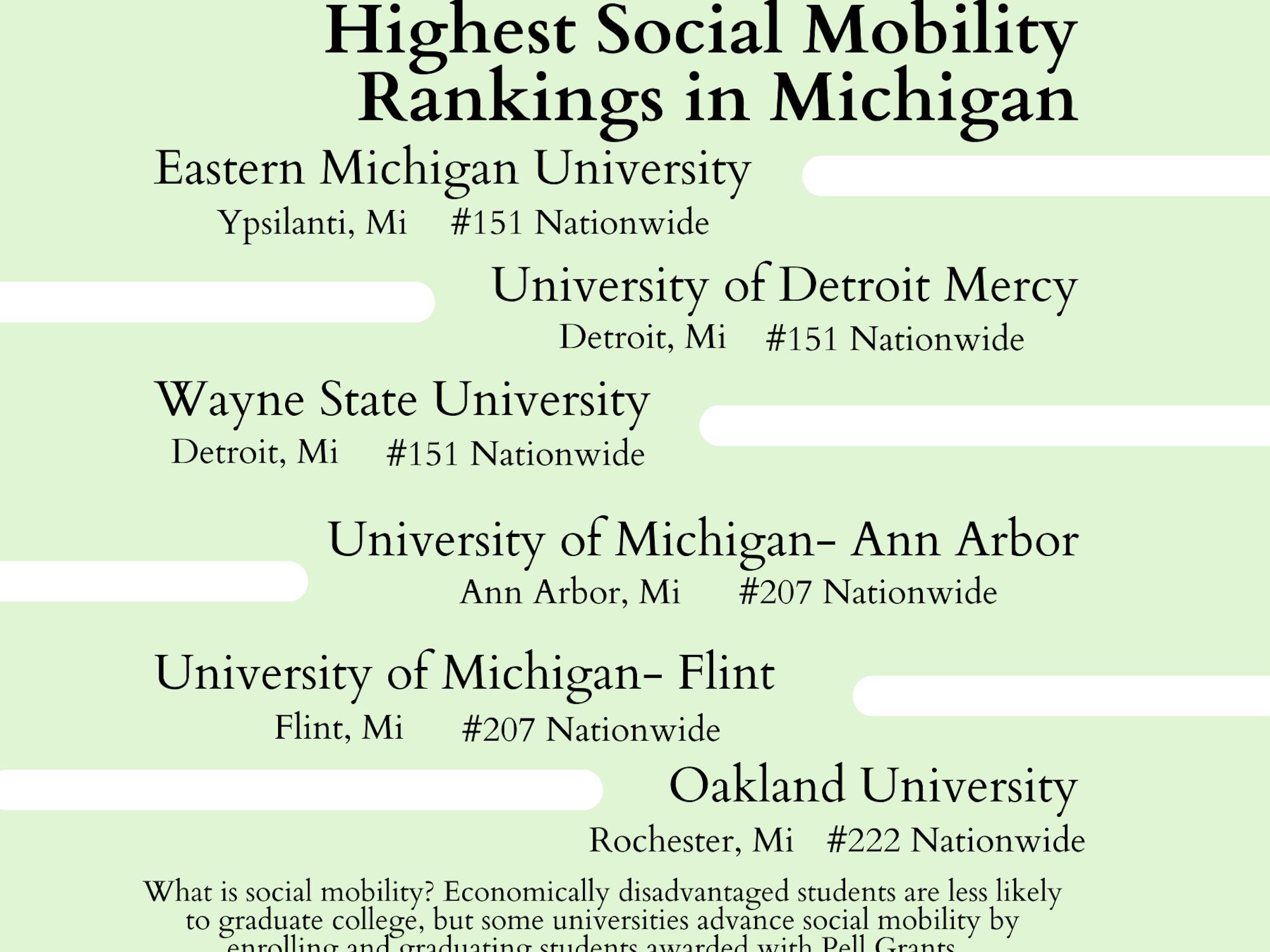Eastern Michigan University is tied for first among Michigan universities advancing in key social mobility, according to a U.S. News and World Report.
Economically disadvantaged students are less likely to finish college than others, but some colleges are more successful at advancing social mobility, according to U.S. News and World Report. This is done by enrolling and graduating large proportions of disadvantaged students.
For several years, EMU has scored highly in the U.S. News’ Social Mobility rankings. The university advances social mobility by awarding Pell Grants to 46% of first-year, full time students, and graduates, a large number of first-generation college students each year, two criteria for the social mobility ranking.
“While Eastern scores highly in a number of national rankings of various academic and service-oriented programs, this particular ranking is one of the most significant and rewarding,” Eastern Michigan University’s President James Smith said in a written statement. “We don’t use the phrase ‘mission of opportunity’ lightly. It is what Eastern Michigan University stands for; providing pathways to opportunities and careers for those who might otherwise be left behind.”
The U.S. News and World Report also recognizes EMU’s engineering programs. Undergraduate engineering programs at EMU climbed 18 places in the national rankings this year. Now ranking 69th among universities in the nation, up from 87th last year and 119th two years ago.
2023 marks the 38th year U.S. News and World Report has ranked national universities. U.S. News and World Report evaluated nearly 1,500 national four-year bachelor's degree-granting institutions on as many as 19 different criteria. Using academic and non-academic information to determine the rankings, they are based on academic quality and graduation rates. Financial aid awards, campus culture, and strength in majors were considered, but not overall deciding factors.
To be ranked, institutions have to meet certain conditions. Institutions has to have regional accreditation, be included in Carnegie's Basic classification, enroll at least 100 undergraduate students, have reported financial data to the U.S. Department of Education's Integrated Postsecondary Education Data System (IPEDS) finance survey, and have recently reported a six-year graduation rate of full-time, first-year bachelor’s degree-seeking students. If an intuition does not pass all of these criteria they are listed as unranked.









